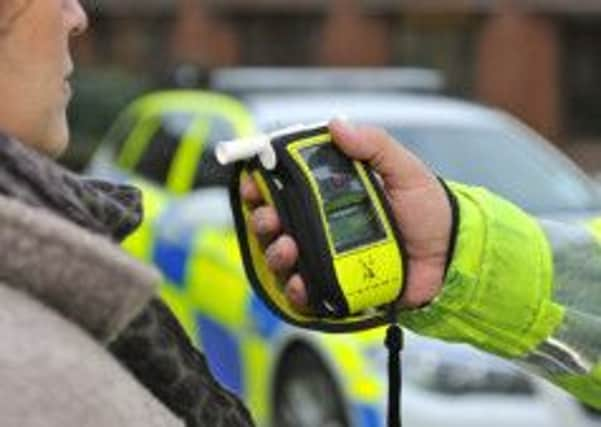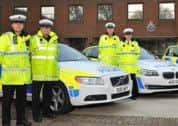Police launch Christmas drink drive campaign and warn those who flout the law are very likely to be caught


The campaign, which launches nationally tomorrow (Sunday, December 1) and runs up until January 1, 2013, will see Bedfordshire police in partnership with the forces in Cambridgeshire, Hertfordshire, Essex, Suffolk and Norfolk.
Their aim is to inform motorists of the consequences of drinking or taking drugs and then getting behind the wheel.
Advertisement
Hide AdAdvertisement
Hide AdIt also serves to warn anyone tempted that if they do drink and drive, they are very likely to be caught and arrested.


Officers will be carrying out breath tests and, where relevant, Field Impairment Tests* (FIT) to all drivers involved in any road collisions they attend.
They will also be on the lookout for any suspicious driving and will stop and check anyone suspected of committing a driving offence, as part of their usual patrols.
Advice and enforcement activity will also be passed directly to the public via Twitter on @roadpoliceBCH.
Advertisement
Hide AdAdvertisement
Hide AdChief Inspector Richard Hann, from the joint Bedfordshire, Cambridgeshire and Hertfordshire Roads Policing Unit, said: “We are supporting this national campaign to raise awareness amongst drivers that any alcohol in your system can impair your judgement, cause difficulty assessing road conditions and ultimately cause a serious collision.
“Individuals’ reaction times will be slower and they are less likely to observe what’s going on around them.
“There is no safe drink drive limit, so if you want to enjoy a drink this Christmas, then make sure you have organised a way to get home, either through a designated non-drinker, public transport or a taxi.
“It is also important to remember that alcohol will stay in your system for a while and depending on the amount of alcohol you have consumed, it is often still unsafe to drive the following morning even after a good night’s sleep.”
Advertisement
Hide AdAdvertisement
Hide AdBecause of the tri-force Roads Policing Unit, the borders between the three counties cease to exist making it easy for traffic officers to follow suspected drunk drivers anywhere across the region.
Chief Inspector Hann added: “We are stopping people round the clock, so don’t think you’ll be able to get away with drink driving because it is the morning time and police are not likely to be out and about. This is not the case.”
Police are also working with the Courts and Crown Prosecution Service (CPS) to expedite some drink drive cases to court during the campaign which could mean that those found guilty could lose their licence before Christmas.
Police advise the following alternatives to drink driving:
If you have to take the car, make sure you stick to non-alcoholic drinks rather than having one glass of wine or a pint of beer and hoping you’ll be under the legal limit – you can’t calculate your limit so don’t try to.
Advertisement
Hide AdAdvertisement
Hide AdTake it in turns for one of your party to be the designated driver on nights out.
Leave the car at home and use public transport or take a registered taxi - why not pre-book one with a reputable company before you go out.
Stick to soft drinks – it tends to be a cheaper alternative as well as helping you avoid that ‘morning after the night before’ feeling.
If you are found to be driving while under the influence of drink or drugs you can face:
Advertisement
Hide AdAdvertisement
Hide AdA minimum of a 12-month disqualification, as well as a fine and/or imprisonment.
The offence of causing death by careless driving whilst under the influence of drink or drugs now carries a maximum penalty of 14 years’ imprisonment and a disqualification of at least two years.
The legal alcohol limit for driving is 80mg of alcohol per 100ml of blood but there is no failsafe guide to the amount of alcohol that a driver can safely consume.
The amount and type of alcoholic drink, the weight, sex and metabolism of the driver all play a part.
Advertisement
Hide AdAdvertisement
Hide AdAny amount of alcohol affects driving ability – a motorist’s ability to judge speed and distance may be impaired, their reaction times may be slowed and their judgement of risk seriously affected.
The county’s anti-drink-driving campaign supports the national initiative by the Association of Chief Police Officers (ACPO) which runs from December 1 to January 1.
>> People can get involved in the campaign by supplying police with information about drink and drug drivers via the confidential reporting line on 101.